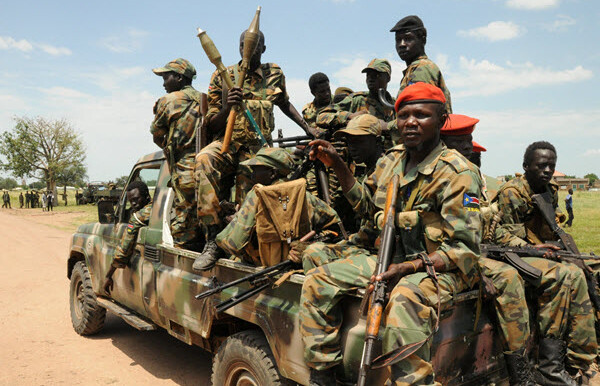The South Sudan Peoples Defense Forces (SSPDF) says they have orders to use force against the ‘white army’, a group of armed youths, currently fighting in Upper Nile’s Fashoda County, if they refuse to return to their areas in Jonglei State.
In a statement last week, the ceasefire monitors said they had received reports of fighting in Upper Nile State involving Agwelek forces, the white army, Kit-Gwang forces, SPLM/A-IO, and the SSPDF. Humanitarian organizations said the fighting has led to the displacement of at least 20,000 people since August.
Speaking to Radio Tamazuj this morning, SSPDF spokesperson Major General Lul Ruai Koang said SSPDF forces were deployed to Fashoda County at the end of last week to cease hostilities and protect civilians. He said President Salva kiir Mayardit gave the orders. the order.
“There are clear instructions for the White Army group to return to their areas in Jonglei state, and if they refuse, they will be dealt with by force until they return to their areas,” Gen. Koang said. “The forces were deployed to protect civilians from the attacks of the White Army.”
He claimed that the government intervened after the SPLA-IO Agwelek forces led by Johnson Olony failed to protect the civilians in those areas.
“The situation is unstable in Fashoda that is why we have deployed government forces in the region. These forces do not include the unified forces, but with time, the unified forces will be deployed in the region,” Ruai noted.
On claims of fighting between the ‘white army’ and government forces in the Wau-Shilluk area over the weekend, Lul said: “There may be fighting, but we have no information yet.”
For his part, Al-Tayeb Ukuj Ajak, Upper Nile state adviser for peace affairs, affirmed the deployment of government forces in Fashoda County but added that there is ongoing fighting between local youths and the ‘white army’ in several villages in the county.
According to Ukuj, the Aburuch IDP camp was most affected by the fighting.
He said: “The camp was destroyed, people killed, property looted and many people were displaced and kidnapped by the white army.”
Yuanis Adok, the head of the state Relief and Rehabilitation Commission (RRC), said that the number of people displaced due to the fighting in Fashoda county is estimated at 48,500.
Adok added that the displaced are seeking refuge at Kodok, Melut, and UNMISS Protection of Civilians Site in Malakal town.
He revealed that among the displaced, 30 children were separated from their families, but that the UNHCR is working with other parties to reunite them with their families.
The RRC official said it has been difficult to establish the exact number of casualties and missing persons due to continued fighting.
Since last October, the White Army forces have been carrying out armed attacks on several villages in Fashoda County of Upper Nile State, killing dozens, displacing thousands of civilians from their areas, and burning villages.




